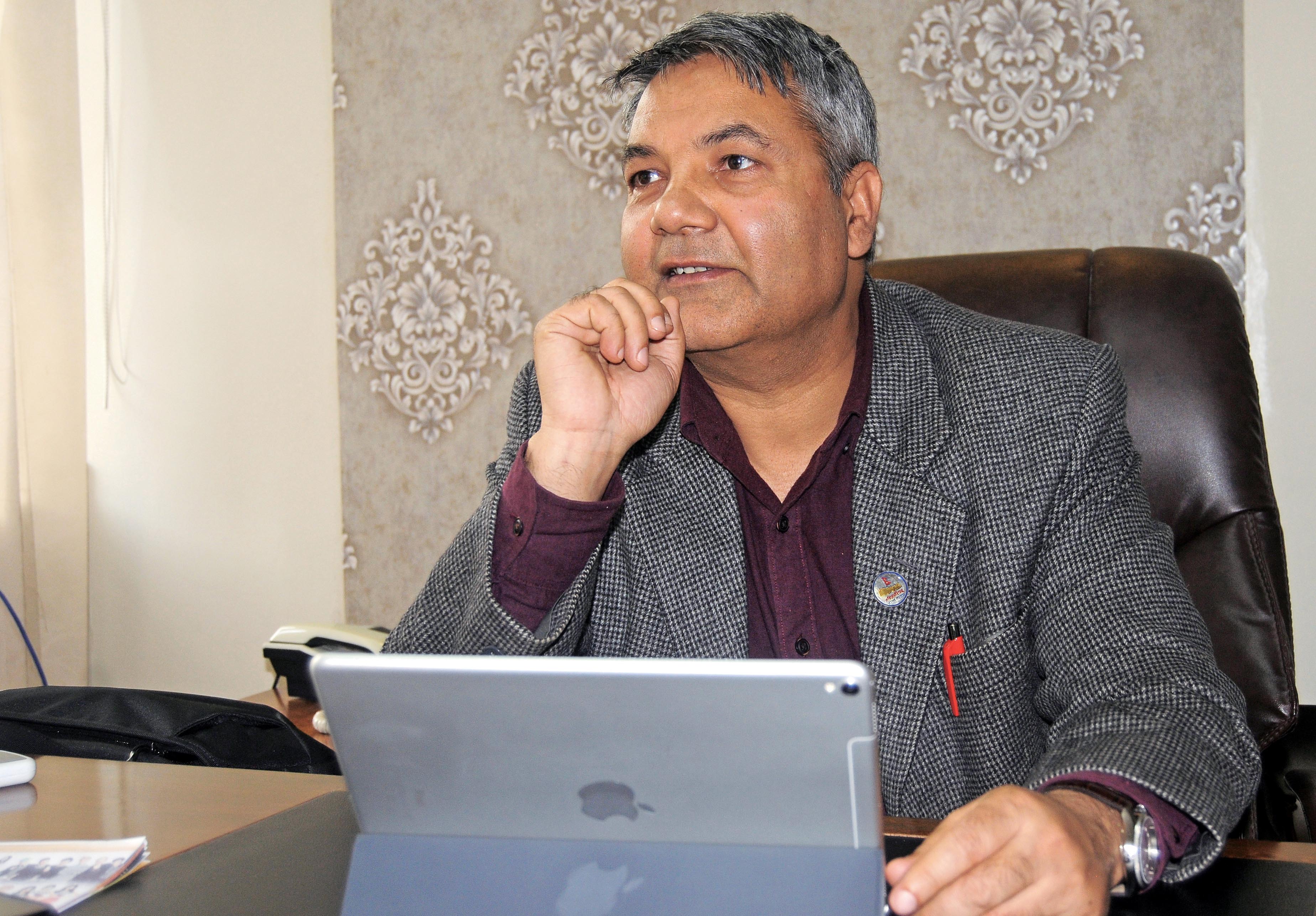No deviation in Nepal’s policy: Baskota
Kathmandu, September 12
A day after the Embassy of the United States sought the government’s clarification on a Chinese Foreign Ministry statement that stated Nepal disagrees with the Indo-Pacific Strategy, the government Spokesperson Gokul Prasad Baskota today said there had been no deviation in the government’s position regarding the IPS.
“Whether it is Indo-Pacific Strategy or Belt and Road Initiative or any other such issue, we, as an independent country, deal carefully with our friendly neighbours and other friendly countries. There has never been any deviation or change in our existing policy,” said Minister of Communications and Information Technology Gokul Baskota in response to journalists’ queries at a weekly press briefing.
Minister Baskota, however, fell short of telling what the government policy on the IPS was. The government too has not made its official position clear
on whether it endorses the IPS or not, but Minister of Foreign Affairs Pradeep Kumar Gyawali has publicly said on multiple occasions that Nepal cannot be part of any such strategic alliance due to its policy of non-alignment.
Statements coming from US officials too are not very clear. On some occasions they have said the Millennium Challenge Corporation Compact Programme is part of the IPS, implying that Nepal is part of the IPS because it is a party to the MCC scheme. On other occasions, they have said the US has not asked Nepal to join the IPS.
Minister Gyawali has also said Nepal does not see the MCC Compact as part of the IPS.
THT’s attempts to reach Gyawali for a fresh comment failed.
US Ambassador to Nepal Randy Berry today held a meeting with Foreign Secretary Shanker Das Bairagi on the same matter. Although diplomatic sources on both sides confirmed that the meeting between the two took place this morning, they did not disclose what transpired in the meeting. THT’s multiple attempts to reach Secretary Bairagi over the phone failed, while the embassy’s representatives concerned were not available for comment.
The US embassy’s concern had come after a Chinese Foreign Ministry statement on Tuesday quoted Nepal Communist Party (NCP) Co-chairperson Pushpa Kamal Dahal as saying, “Nepal firmly adheres to the policy of non-alignment, disagrees with the so-called Indo-Pacific Strategy and opposes any attempt to contain or thwart China’s development.”
According to the official English translation of the statement originally issued in Chinese language, Dahal said so during his meeting with visiting Chinese Foreign Minister Wang Yi in Kathmandu on Tuesday.
Seeking clarification from the government, the US embassy had said it was bewildering that they learnt about Nepal’s position from statements issued by China.
Meanwhile, lawmakers today said Nepal should not be part of any strategic alliance, such as the IPS, in line with its policy of non-alignment and that the government should make its position clear.
Speaking in today’s meeting of the House of Representatives, Nepal Workers and Peasants Party lawmaker Prem Suwal said unlike the BRI, the IPS was a military alliance and that Nepal should not subscribe to it.
Ruling NCP lawmaker Pampha Bhusal said the government should reject the US government’s recent proposal to conduct joint training with Armed Police Force, terming the exercise a part of the IPS.
READ ALSO:






